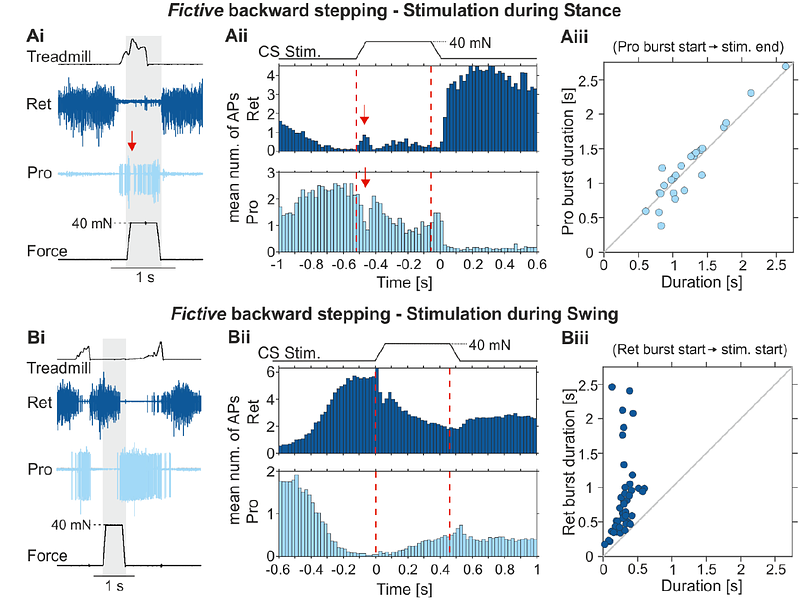Task-specificity of local load feedback depends on intersegmental information in an insect walking system

Task-specificity of local load feedback depends on intersegmental information in an insect walking system
Ruthe, A.; Oezyer, A.; Akay, T.; Bueschges, A.
AbstractLoad proprioceptive feedback measured by campaniform sensilla (CS) substantially contributes to the generation of leg stepping during walking. In stick insects, the effect of load feedback on the antagonistic protractor and retractor motor neurons (MNs) reverses depending on the walking direction to support the functional stance MN pool in both stepping directions. However, this was shown in highly reduced preparations in which the stimulated leg did not perform actual stepping movements, but the effect was inferred from MN activity profiles. It is still largely unknown whether the load feedback similarly shows a direction dependent reversal in its effects on protractor and retractor activity during actual stepping of the stimulated leg. Here, we implemented load stimulation in a single-middle leg preparation and recorded protractor and retractor MN activity extracellularly during fictive forward and backward stepping. We show that CS stimulation during the stance phase prolonged stance (retractor) activity for the duration of the stimulation and induced stance (retractor) activity when applied during the swing phase in forward stepping. During backward stepping, when protractor and retractor switch phases, the same stimulation again prolonged stance (protractor) activity for the duration of the stimulation. However, it rarely induced stance (protractor) activity when applied during the swing phase. We provide evidence that this is due to the absence of signals about the stepping direction of the neighboring legs, thus highlighting the importance of intersegmental signals for task-specific processing of load proprioceptive feedback.